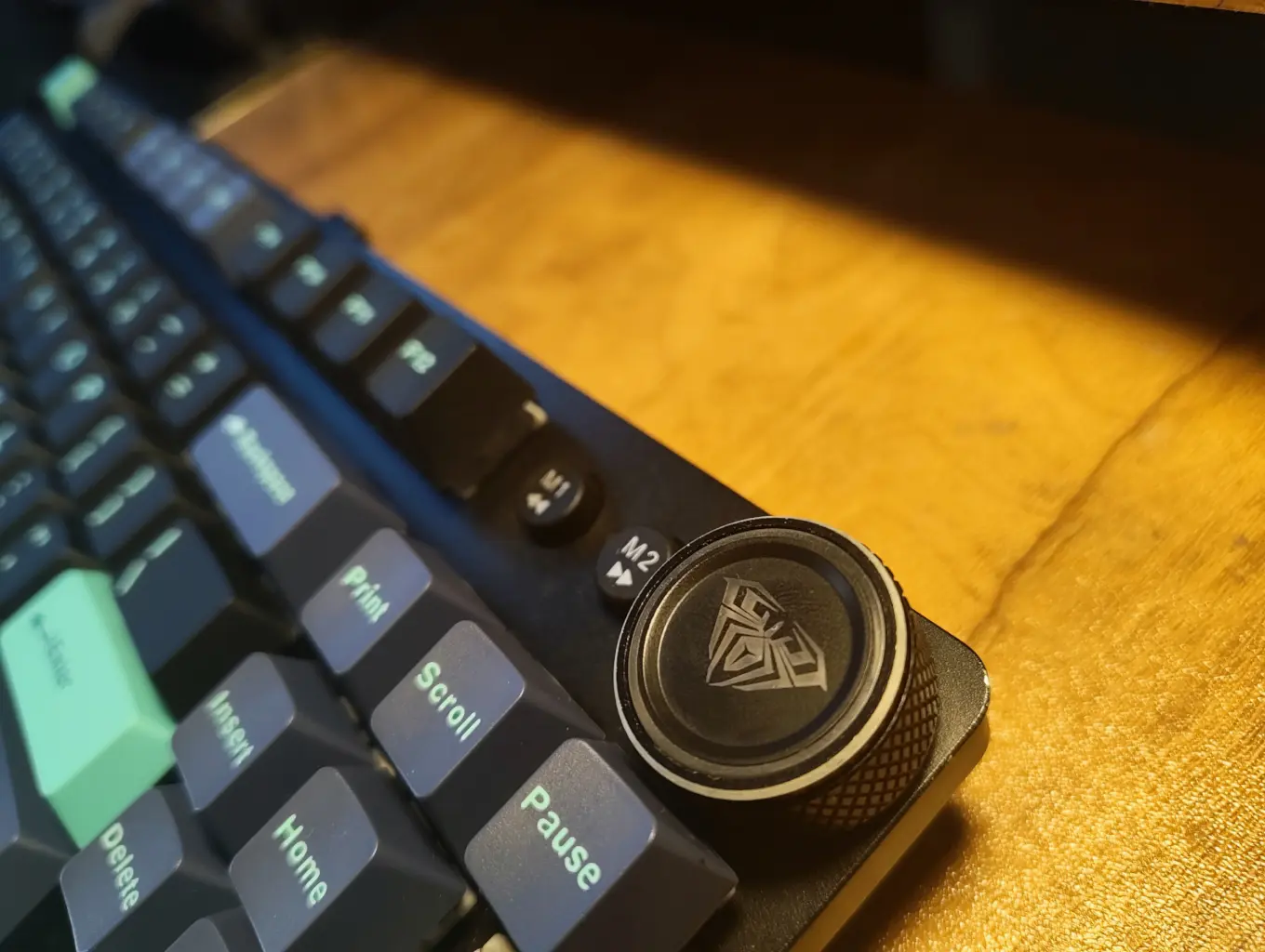keyd: Layers, macros, and remaps, even on laptop keyboards

I have a mechanical keyboard (blue switches) with a volume knob. These things have pretty satisfying tactile feedback which makes them fun to play with.
I felt that I wasn't using it enough, so I decided that once I get some free time, I'll find a way to remap it to something more useful than adjusting volume.
On one lazy day (ie, just before one of the uni exams), I decided to look more closely at the knob. Turns out, when it's rotated clockwise, it simulates pressing the Volume Up key, and vice versa counter-clockwise.
Now all I had to do was remap these keys to something more useful.
Since my keyboard doesn't support QMK or VIA, I had to find something that works on all keyboards.
That's when I stumbled on keyd. It's a wonderful little daemon that intercepts keypresses and lets you do things like remap buttons (CapsLk to Ctrl when held, Esc when tapped being a common one), create layers, and more.
It works by spinning up a daemon that reads from a config file, after which it happily does its thing in the background.
I mapped my volume knob to up/down arrow keys by default, and left/right arrow keys when shift is held.
I also created a global config that lets me use
AltGr+h/j/k/l instead of arrow keys (on all keyboards,
including my laptop's). I also use AltGr as my compose
key, which I didn't want to break. Turns out, you can specify
that you want to overload a key in the keyd config file. This makes it behave
like normal AltGr when tapped, but changes to a special nav layer
when held. This layer then lets me use my h/j/k/l keys for
navigating around.
This is what my global config looks like:
[ids]
*
[main]
# AltGr will be RightAlt/Compose on press, nav layer on hold.
altgr = overload(nav, rightalt)
[nav]
h = left
j = down
k = up
l = right
And this is what the config for my mechanical keyboard looks like:
[ids]
1a2c:7fff:3c9dd5ab
[main]
volumeup = down
volumedown = up
[shift]
volumeup = right
volumedown = left
[control]
volumeup = volumeup
volumedown = volumedown
[alt]
volumeup = brightnessup
volumedown = brightnessdown
Comments
Comment via ...